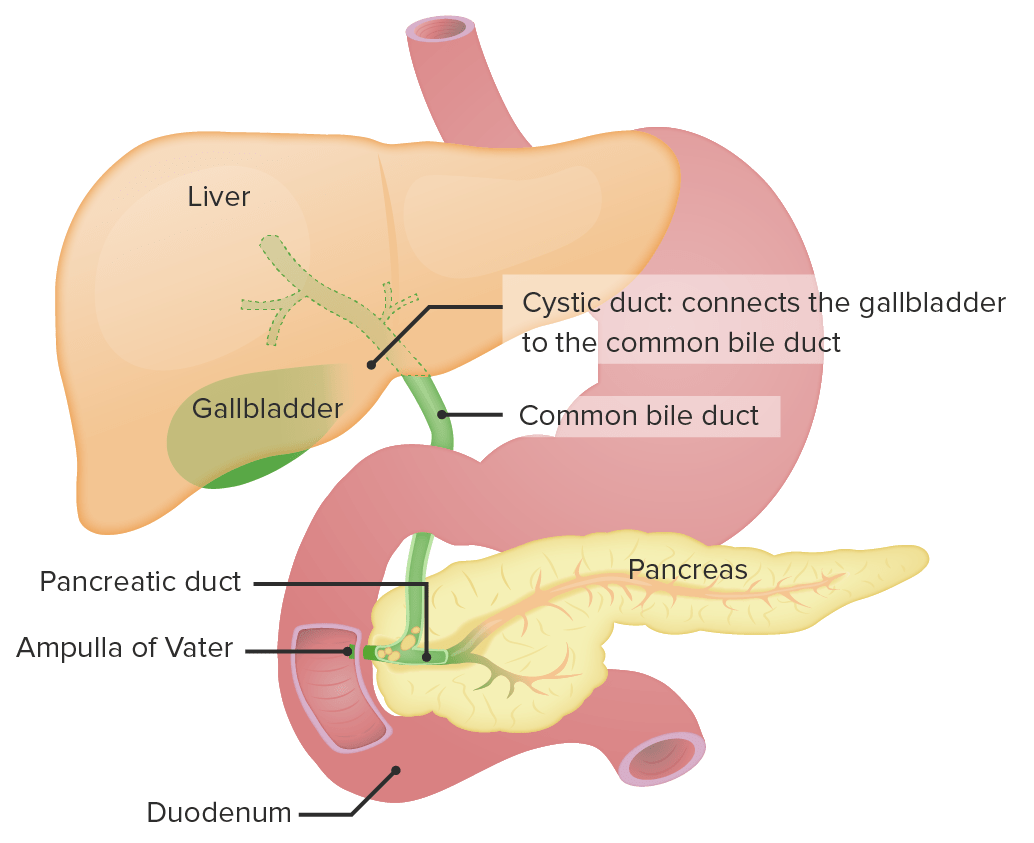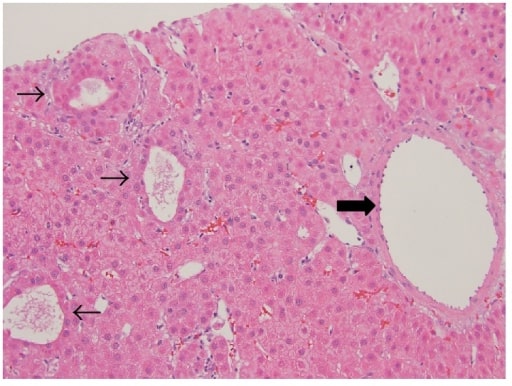Playlist
Show Playlist
Hide Playlist
Other Hepatobiliary Malignancies
-
Slides Gastroenterology 17 Hepatobiliary Malignancy.pdf
-
Reference List Gastroenterology.pdf
-
Download Lecture Overview
00:03 So there are other cancers in the hepatobiliary system that we have not mentioned yet. 00:08 As a quick aside, remember that the liver is the primary site of metastasis for all cancers that originate throughout the GI tract. 00:17 This is because all of the blood flow in the GI tract eventually goes to the portal system and is filtered by the liver. 00:24 So you should remember that, just because you find a lesion in the liver on imaging, this does not always mean it is hepatocellular carcinoma. 00:34 So there are many cancers that commonly metastasize to the liver. 00:38 As we mentioned, most GI cancers can metabolize there including colorectal cancer, stomach cancer, esophageal cancer and pancreatic cancer. 00:50 On the other hand, other cancers outside of the GI tract can also metastasize to the liver, including breast cancer, lung cancer, ovarian cancer and melanoma, Another type of cancer that can affect the hepatobiliary system is specifically gallbladder cancer or gallbladder carcinoma. 01:11 It is a very rare disease but is often fatal when diagnosed. 01:16 As we mentioned, it is often diagnosed at late stages and so patients have very poor prognosis with this disease. 01:23 Risk factors include a history of gallstones, gallbladder polyps, a condition called 'porcelain gallbladder' and things like obesity and whether they are chronic carriers of certain infections. 01:36 Patients may present with right upper quadrant pain, nausea, vomiting, weight loss. 01:41 They may also have jaundice and biliary colic from the obstruction of the biliary tree. 01:48 So, the diagnosis, unfortunately is usually diagnosed at the time of surgical removal of the gallbladder by pathology. 01:58 And treatment, for limited stage cancers is surgical removal of the gallbladder with a cholecystectomy. 02:05 For those who cannot undergo surgery or if the cancer is too extensive, you may do chemotherapy plus or minus radiation. 02:13 And a mainstay of treatment is palliative care. 02:18 Thank you very much for your attention.
About the Lecture
The lecture Other Hepatobiliary Malignancies by Kelley Chuang, MD is from the course Disorders of the Hepatobiliary Tract.
Included Quiz Questions
Which of the following medical conditions is a risk factor for gallbladder cancer?
- Porcelain gallbladder
- Colon polyps
- Loss of appetite
- Hepatic abscess
- Acute cholangitis
Customer reviews
5,0 of 5 stars
| 5 Stars |
|
5 |
| 4 Stars |
|
0 |
| 3 Stars |
|
0 |
| 2 Stars |
|
0 |
| 1 Star |
|
0 |





